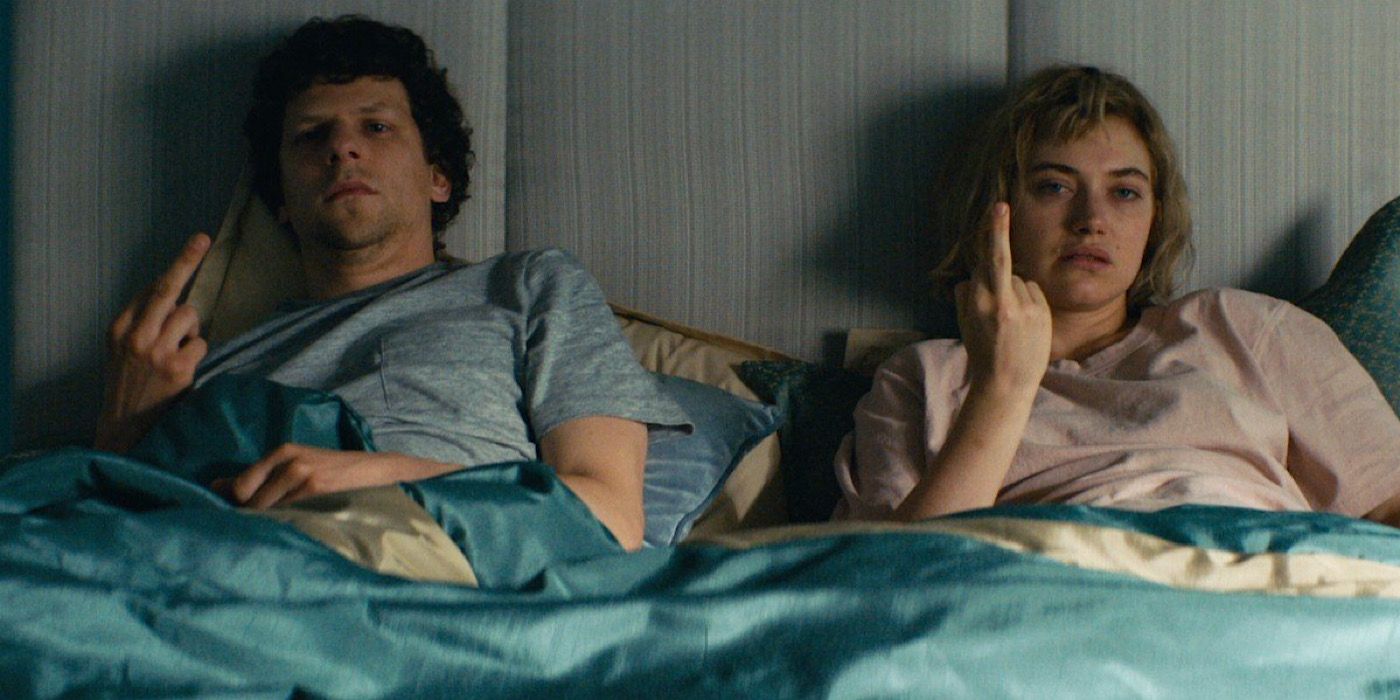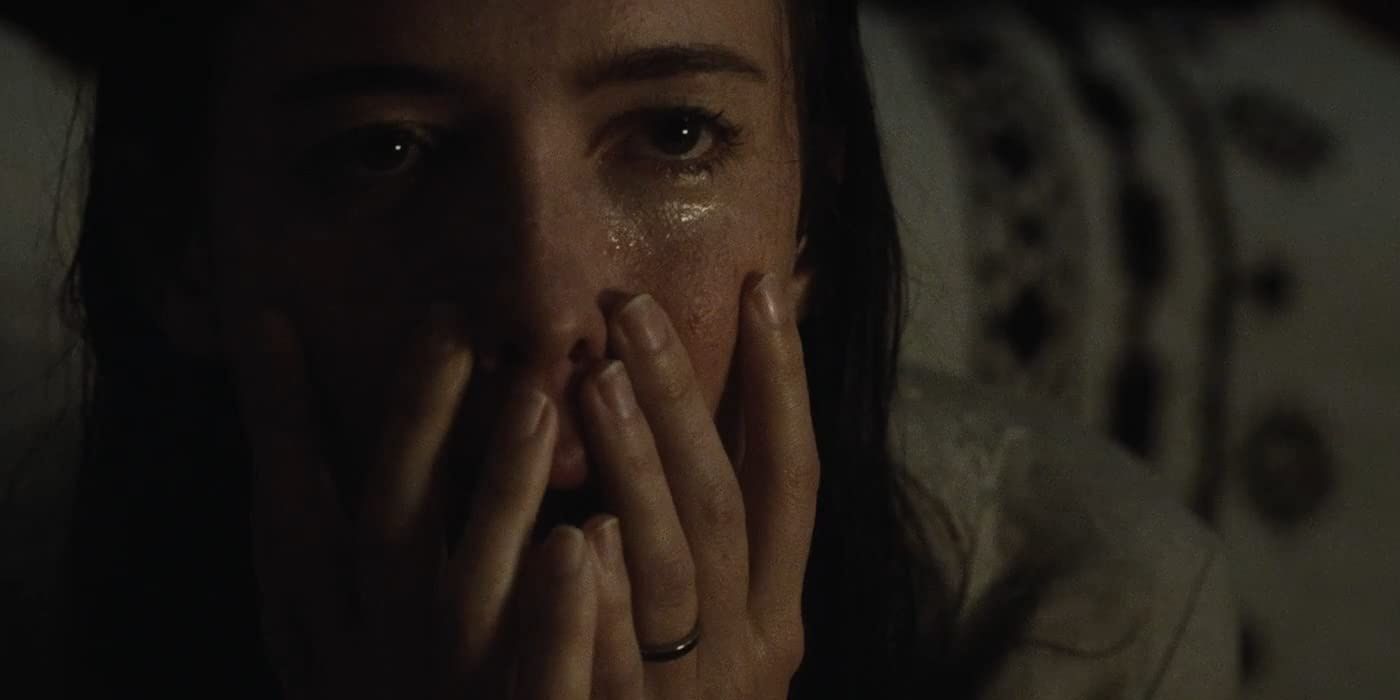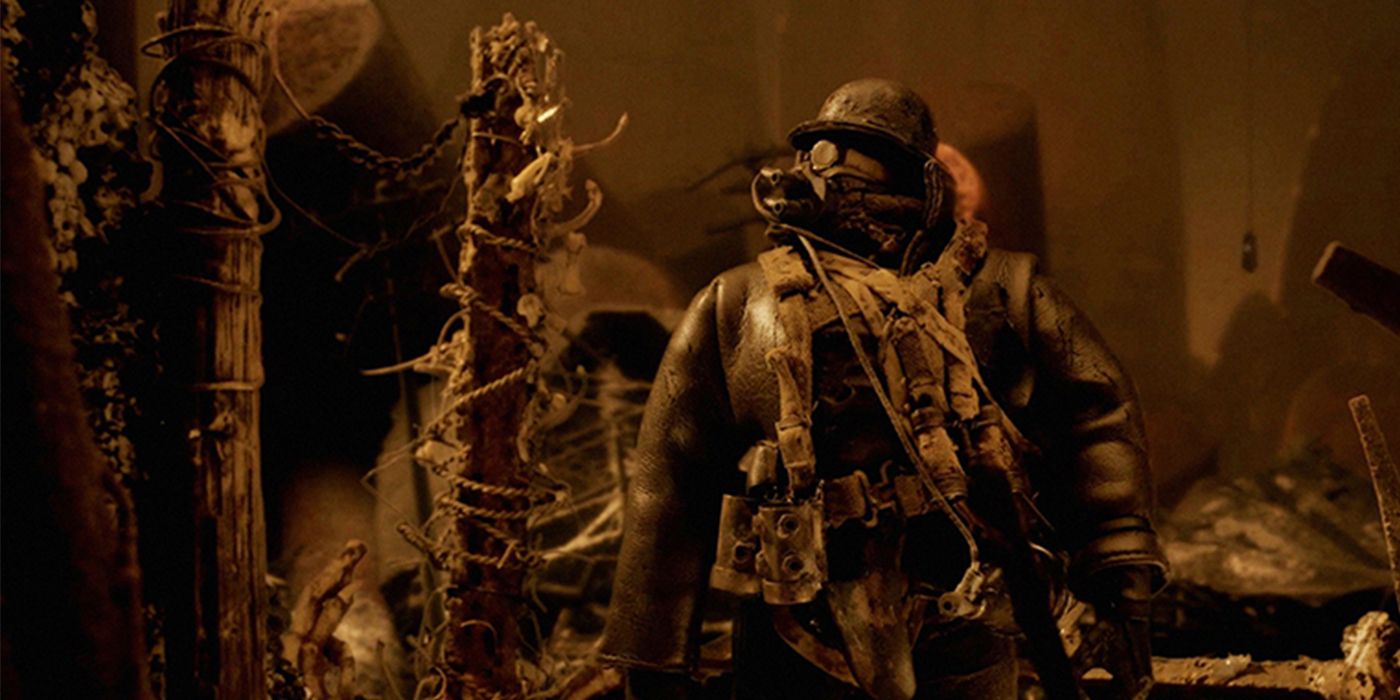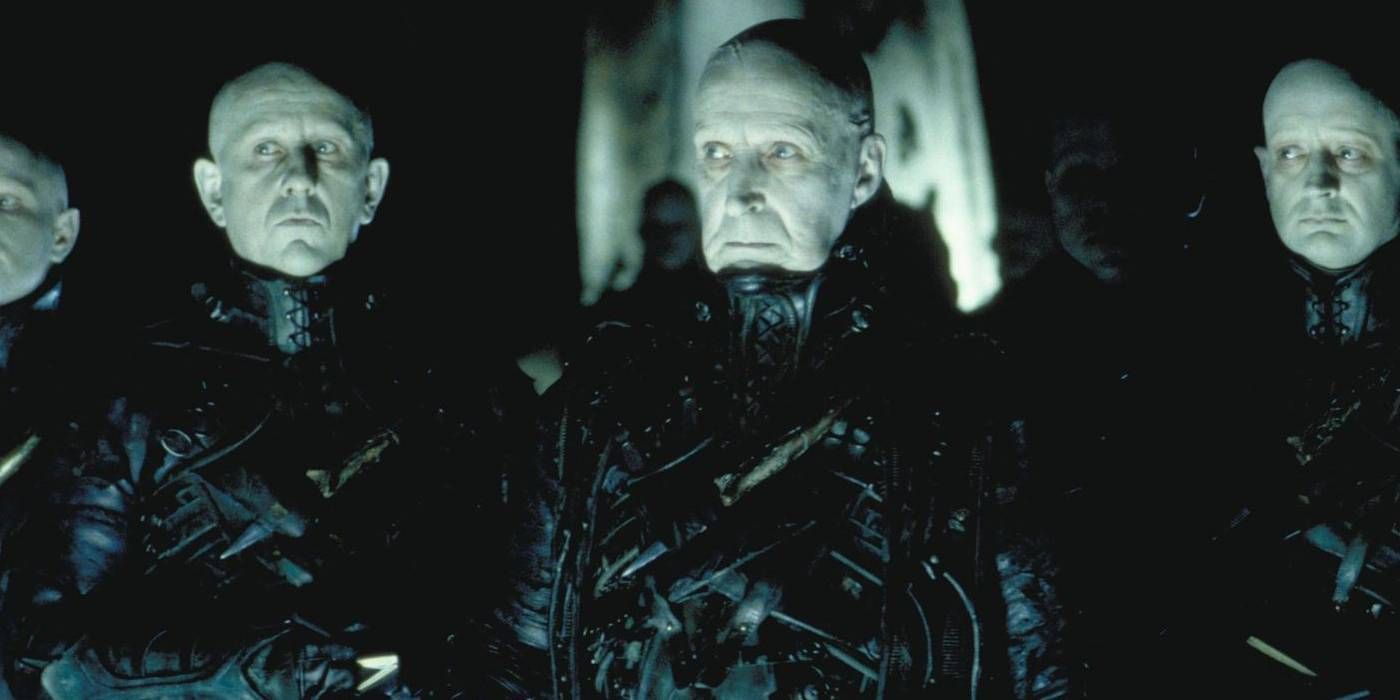While a captivating movie can easily engage an audience and evoke emotional responses, a truly exceptional film has the power to provoke deep reflection on its themes and messages. Such thought-provoking cinema often leaves viewers with lingering questions and insights that resonate long after the credits roll, marking their place in the rich tapestry of cinema history. Unfortunately, many remarkable films that challenge viewers intellectually remain overlooked in the cultural conversation, despite their ability to ignite profound contemplation.
Typically, it’s the sharp thrillers and horror films that manage to blend entertainment with intellectual engagement, often overshadowed by the grandiosity of sci-fi epics or the emotional weight of mystery dramas. These films frequently feature intricate plot twists and thought-provoking symbolism, compelling audiences to grapple with complex ideas for days on end. It’s regrettable that many philosophical films and those that broaden our horizons do not receive the recognition they rightfully deserve.
8
Primer: A Complex Exploration of Time Travel
Critically Acclaimed Yet Challenging: A Deep Dive into Time Travel
Among the many narrative devices employed in cinema, few are as intricate as the concept of time travel, which often leads to convoluted storytelling. One film that masterfully tackles the complexities of this idea is Primer, an independent production that has garnered critical acclaim yet remains relatively obscure. The narrative follows two ambitious entrepreneurs who stumble upon a groundbreaking discovery in time travel technology. However, their experiments lead them down a perilous path, threatening the fabric of reality itself.
In stark contrast to mainstream science fiction offerings, Primer refuses to simplify its intricate theories and mathematics for general audiences, which left some viewers perplexed while critics praised its authenticity and rigorous portrayal of the scientific method. The film’s density and complexity may initially deter some, but its realistic approach to time travel makes it a remarkable cinematic achievement worthy of exploration.
7
Timecrimes: A Thrilling Exploration of Self and Consequence
A Gripping Time Loop Journey Where the Protagonist Faces Himself
Another fascinating entry in the realm of time travel narratives is Timecrimes, which presents a unique take on the concept through a Groundhog’s Day-style looping scenario rather than traditional time travel. This Spanish-language sci-fi thriller centers on Hector, a middle-aged man living in the serene Spanish countryside, who unexpectedly becomes embroiled in a tense encounter with a bandaged figure bearing a striking resemblance to himself. This encounter sets off a chain of events involving a scientist who entangles him in a time loop, forcing him to confront various iterations of his own identity.
Like Primer, fully grasping the intricate plot of Timecrimes may require multiple viewings. However, once the narrative’s complexities begin to unfurl, the film reveals gripping tension and a haunting mystery that captivates audiences. With its minimalistic approach—featuring only a handful of locations and characters—Timecrimes demonstrates how a tight, well-constructed time travel paradox can lead to a profound cinematic experience.
6
Vivarium: A Disturbing Reflection on Suburban Life
An Eerie Exploration of Suburbia and Human Existence
Despite its recent release, Vivarium has been unjustly overlooked as a horror film that combines existential dread with thought-provoking themes. Featuring performances by Jesse Eisenberg and Imogen Poots, the story follows a young couple searching for their dream home, who find themselves trapped in a monotonous suburban nightmare within a row of identical houses. Their situation becomes increasingly dire when a mysterious package containing a human-like infant is delivered to them, along with instructions on how to raise it.
Witnessing the psychological unraveling of the couple as they confront the horrors of their mundane existence is a chilling experience that few films in the genre can replicate. The narrative is rich with unsettling mysteries surrounding the alien force orchestrating their plight, compelling them to nurture their offspring within a bizarre, custom-designed reality. With surreal experiences, deteriorating sanity, and unsettling imagery, Vivarium stands as an underrated horror film that invites deep reflection.
5
The Night House: Confronting Grief and the Unknown
A Haunting Encounter with the Abyss of Existence
Another underappreciated addition to the horror genre is The Night House, which features an exceptionally imaginative and high-concept supernatural antagonist. The plot centers around a widow grappling with the emotional turmoil of her husband’s apparent suicide. As she uncovers his secretive activities leading up to his death, including the enigmatic construction of the titular house, she inadvertently awakens a profoundly unsettling supernatural presence.
In The Night House, the antagonist embodies not just death itself, but the very essence of nothingness and existential annihilation, lurking within the protagonist’s psyche, a remnant of a near-death experience. This villain is depicted in a strikingly creative manner, appearing as a series of human silhouettes that merge with the eerie architecture of the house. By personifying the concept of oblivion, The Night House explores one of the most morbid and abstract ideas in horror, successfully transforming it into a compelling narrative.
4
The Box: A Morally Complex Dilemma
An Intriguing Follow-Up from a Visionary Filmmaker
Richard Kelly, known for the mind-bending time travel elements in Donnie Darko, has created another intriguing narrative with The Box, which, unfortunately, didn’t achieve commercial success. This film features Cameron Diaz and James Marsden as Norma and Arthur Lewis, a couple presented with a morally challenging dilemma by a mysterious stranger. If they choose to open the enigmatic box, they will receive one million dollars, but at the cost of an unknown person’s life.
The performances by Diaz and Marsden are captivating, as they navigate the moral implications of their decision amidst their financial struggles. Frank Langella delivers a compelling portrayal of the enigmatic stranger, effectively heightening the film’s tension. The Box delves into themes of personal ethics and the corrupting influence of external pressures, particularly the insidious nature of capitalism, prompting viewers to reflect on how they would respond to such a harrowing choice.
3
Fractured: A Gripping Psychological Thriller
A Gripping Descent into Madness and Desperation
Brad Anderson, acclaimed for his psychological thriller The Machinist, presents a compelling narrative with Fractured, a film that deserves greater recognition. In this gripping story, Sam Worthington portrays a father who, after an accident leads his daughter to the hospital, awakens to find both his wife and child mysteriously missing. The ensuing search through the hospital quickly spirals into chaos as he encounters an increasingly bizarre and unsettling series of events.
The film masterfully builds tension as Worthington’s character grapples with the possibility that his family may never have existed at all. The shocking twist that ultimately reveals their fate is both creative and devastating, marking Fractured as an underappreciated gem that deserves a wider audience.
2
Mad God: A Visionary’s Decades-Long Journey
The Artistic Masterpiece of a Passionate Creator
Renowned special effects artist Phil Tippett, known for his groundbreaking work in franchises like RoboCop and Star Wars, has poured his creative vision into a unique and surreal project titled Mad God. This ambitious film, which took three decades to complete, presents a bizarre narrative that defies conventional storytelling. Following a lone assassin in a gas mask as he embarks on a surreal journey through a nightmarish landscape, the film explores themes of depravity and existential dread.
Mad God is celebrated not for its dialogue but for its stunningly crafted stop-motion animation that immerses viewers in its haunting world. The film’s visuals invite various interpretations, as the absence of spoken words leaves room for audiences to ponder the metaphoric significance of its striking imagery. Thus, Mad God becomes a mind-bending experience not just through intricate storytelling, but through the sheer depth of its artistic expression.
1
Dark City: The Original Pioneering Sci-Fi Masterpiece
The Groundbreaking Film That Influenced a Generation of Sci-Fi
While many consider The Matrix to be the quintessential mind-altering science fiction film that popularized the concept of a simulated reality, it’s worth noting that a year prior, the lesser-known Dark City explored a strikingly similar premise with far less recognition. The film initially appears to be a conventional noir detective narrative, following an amnesiac man wrongfully accused of murder as he seeks to uncover the truth while evading a mysterious group known as the “Strangers.”
Ultimately, the film reveals that these Strangers are extraterrestrial beings observing a human population that is kept in a perpetual state of ignorance, living only at night within a massive space station disguised as a city. The haunting atmosphere of existential dread that permeates Dark City is masterfully crafted, showcasing a distinctive noir aesthetic. This dark, stylish film rightfully deserves a place among the pantheon of science fiction classics, standing shoulder to shoulder with masterpieces like 2001: A Space Odyssey and Metropolis.


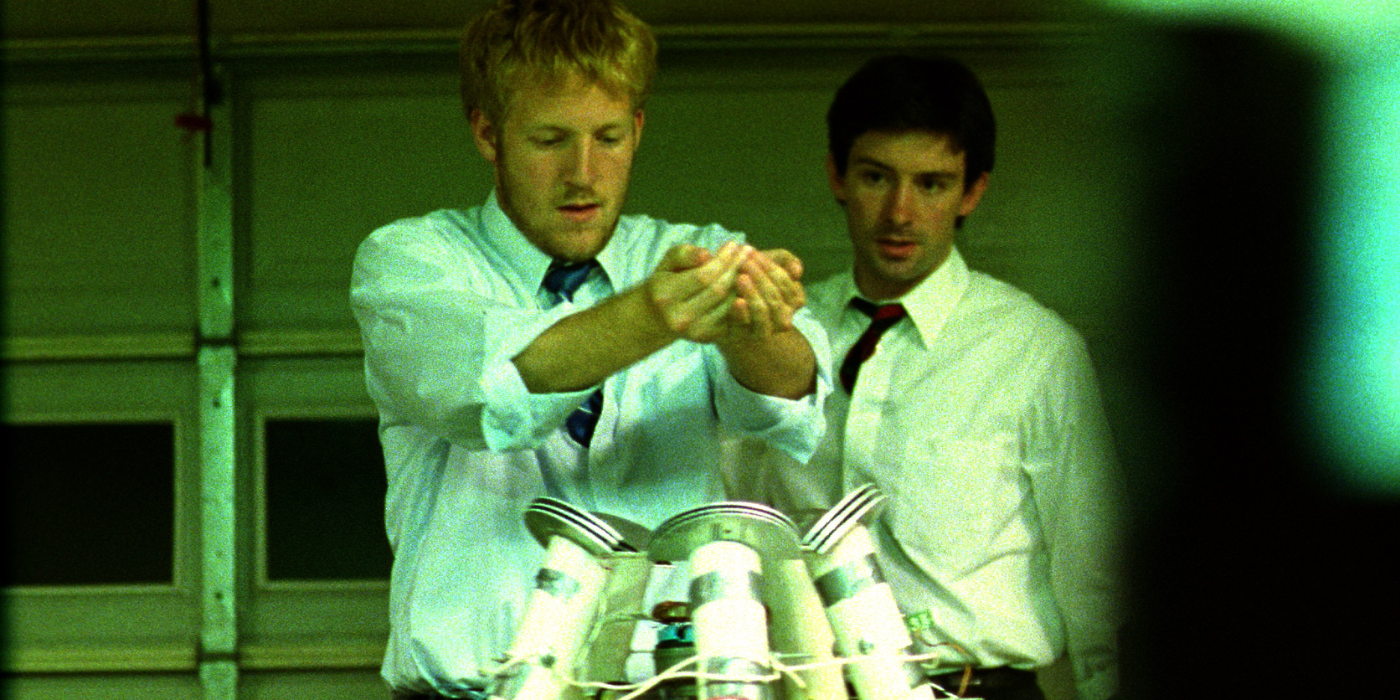
(2007).jpg)
